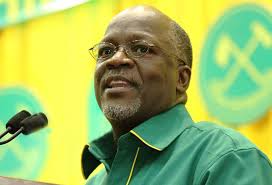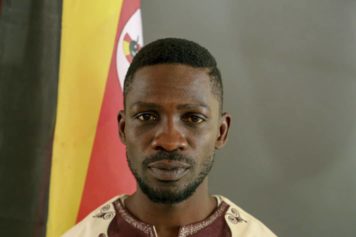There’s a new sheriff in East Africa, and he goes by the name of John Magufuli. Since entering office in November, he has embarked on a number of initiatives and cost-cutting moves designed to stem corruption and unnecessary spending in Tanzania, a country with tremendous potential but one in which the average income is $79 a month (World Bank, 2014). Thus while the nation has enjoyed a decent status as the center for foreign direct investment — particularly from China and the United States — the average citizen is still poor and has not felt the impact.
In walks Magufuli.
Some observers were surprised he was chosen to be the flag-bearer for the Chama Cha Mapinduzi Party because of his reputation against inefficiency.
He reportedly has earned the nickname “The Bulldozer.” The day after he was elected, he made a surprise visit to the Ministry of Finance, presumably to put officials on notice that it would not be business as usual. It wasn’t long before he struck blood when he announced an audit for large companies who previously had avoided taxes.
He also ordered import companies to pay for duties within seven days and ordered a crackdown on public officials who were reportedly working closely with these companies in exchange for bribes.
One week after the election, Magufuli showed up at the main state hospital in Dar es Salaam, to find patients sleeping on the floor and critical machines in poor condition. He immediately fired the director of the hospital and has since taken it upon himself to direct more funds towards the upgrade of the hospital and other medical facilities in the country. His acts resonated with the common wananchi (people) who felt that he understood their concerns and was truly upset by the corruption and the growing distance between the haves and have-nots in Tanzanian society.
Magufuli then made international headlines during Tanzania’s national day when he canceled expensive celebrations and instead ordered the funds to be diverted toward other areas of need in the country. Then, on national day, Magufuli himself went out into the streets with a push broom and began to clean up the roads and areas. This scene has been shared countless times on social media and is in stark contrast to other African presidents and even low-level politicians who shamelessly waste money on all levels of extravagance while the overwhelming majority of the people are mired in deep poverty. The cost for the national day celebration was budgeted for $100,000, but Magufuli used the funds to purchase beds for the hospitals and other items.
In addition to budgetary discipline, he has also cut back on foreign travel for government officials and scrapped a plan for government spending on Christmas cards to be given out by officials. It should be noted this is possibly one of the many methods of corruption as officials have been known to increase the official price of such items. For example, they would charge $80 for an ink pen and then pocket the difference. (Note: $80 for a pen is not an exaggeration; it happened in Kenya).
However, Magufuli’s real impact will be his influence among voters in regional elections and politics. He is the first politician in East Africa, through the use of social media, to gain a popular following for his actions. There is a twitter hashtag, #WhatWouldMagufuliDo?, that is dedicated to cost-saving and anti-corruption measures. People in different parts of Tanzania and other countries are beginning to ask, “If Magufuli can do it in Tanzania, then what’s wrong with our politicians?”
The immediate impact will be felt in Tanzania, where voters will be looking for someone to clean up corruption and provide better services for the people. But in nations such as Kenya, Zambia and Uganda, the impact will be in their upcoming elections. Uganda and Zambia are set to hold elections this year, whereas Kenya’s elections will be in 2017. However, Magufuli will likely make a major impact in Kenya because the election season has already started, and voters are already talking about how they’re looking for someone to actually “do something” and not just make speeches.
In Uganda and Kenya, incoming politicians will likely seek to channel the Magufuli vibe and promise to initiate acts of reform and cut back spending. Both nations will experience financial difficulties in the coming year due to the slowing of the Chinese economy and the likelihood of their currency value taking another hit.
In Zambia, expect both the Patriotic Front and the United Front for National Development to espouse reformist rhetoric and promote themselves as the leaders of change. Magufuli-style talk will not solve the issues of tribalism, long-term cronyism or the coming Eurobond debt. Nor will it provide rain to enable Zambia’s hydroelectric dams to run more efficiently. Instead, it will serve as sound bites for politicians seeking to win over a few extra votes.
One interesting challenge facing Magufuli will be the response of the economic and political elite — many of whom made their fortunes on the corrupt system he is seeking to change. While Magufuli won the position as the party flag-bearer for the election, it remains to be seen if the CCM will choose him again in the next election. In fact, it has been suggested that Magufuli is outshining the party and is moving ahead much further than some stalwarts would have wished.
As Magufuli moves forward, he may have to carefully choose his battles carefully and not get overly bogged down in every aspect of the system or try to fight or investigate every instance of possible corruption. Such actions may prove to be popular to the media but will ultimately take away the focus from building the society and creating a more dynamic economy. In addition, he may risk being viewed as a micro-manager who alienates his supporters in business and politics who may have unclear dealings but generally positive intentions.
Magufuli’s role in Tanzania and East Africa will be talked about and debated by all levels of politics, society and business. Tanzania is widely viewed as the lead contender for East Africa’s next great economy. And due to its large gas reserves, mineral resources and major port projects in Dar es Salaam, Mtwara, Bagamayo and Tanga, it can possibly become one of the leading African nations in the next decade. Magufuli’s influence will be felt, and one thing is for sure: Some will like it and others will loathe it.
Jamal Bradley is an American businessman from Philadelphia and currently based in Kenya.


